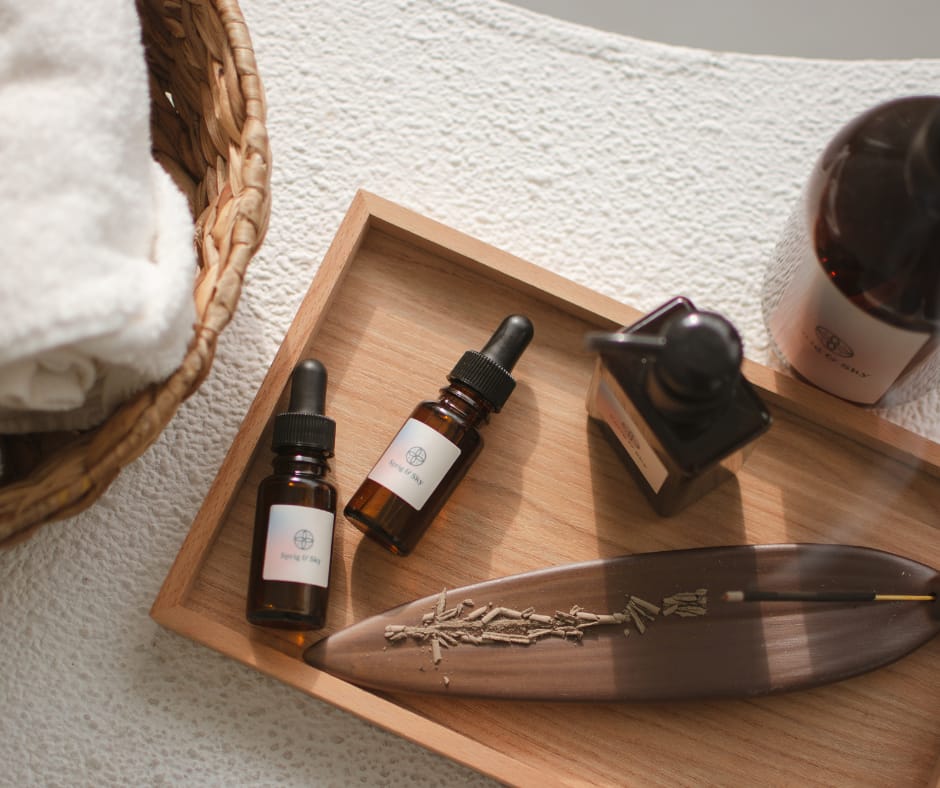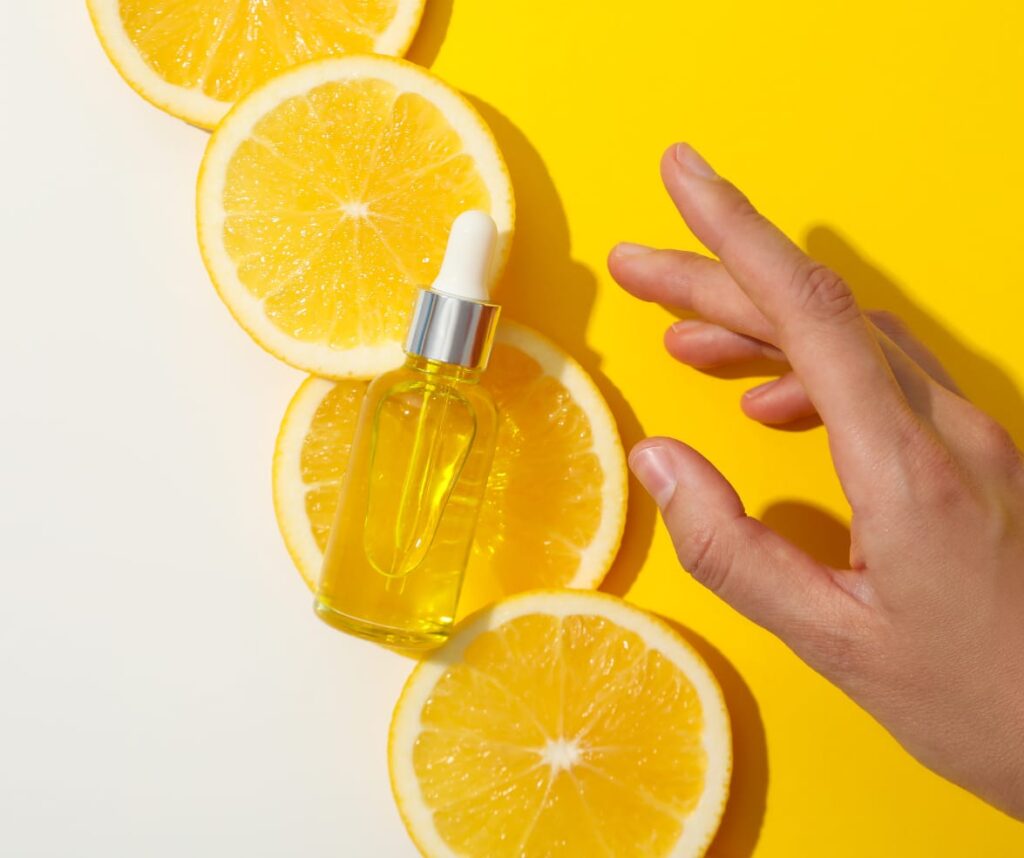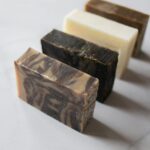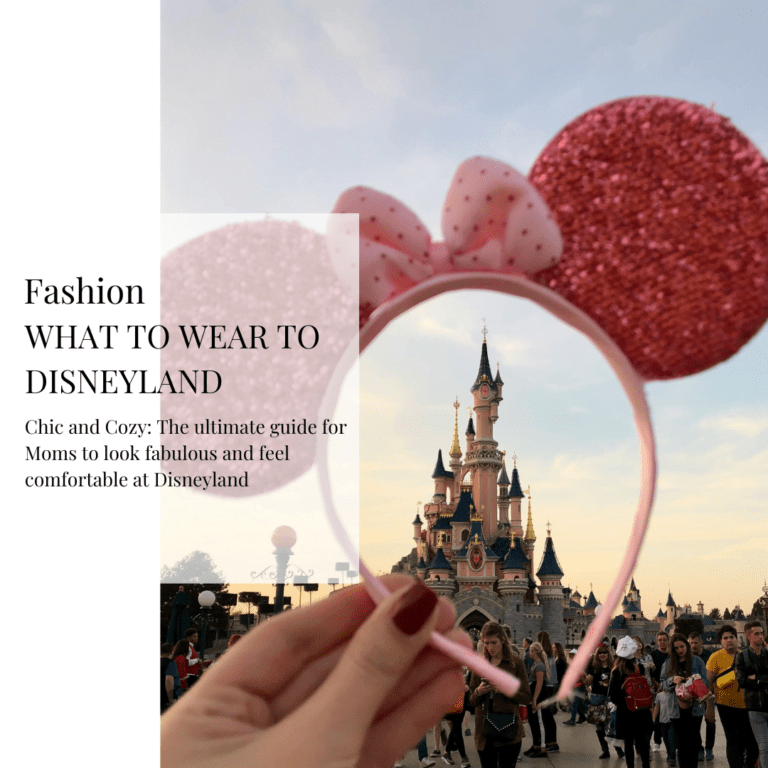Skincare Trends for Your 30s and Beyond: The Power of Retinol, Vitamin C, and Sunscreen
- By Zakia Lott

Join 130k subscribers and get the best of the week, straight to your inbox.
Keep your skin youthful with three essentials: retinol, vitamin C, and sunscreen. Retinol boosts cell turnover, reducing wrinkles and improving texture. Vitamin C brightens skin, fades dark spots, and fights damage. Sunscreen protects against UV rays, preventing aging and skin cancer. For a simple routine: Morning – Cleanse, apply vitamin C serum, moisturize, and use SPF 30+. Evening – Cleanse, apply retinol, and moisturize.These ingredients work together to keep skin firm, glowing, and healthy. Stick to this routine, and your skin will stay fresh and youthful for years!
The best skin care routine for 30s is all about keeping your skin healthy, glowing, and protected as it starts to show subtle signs of aging. Hitting your thirties doesn’t mean drastic changes, but your skin does need a little extra care to stay radiant. With so many products out there, it’s easy to feel lost, but don’t worry—you don’t need an endless lineup of expensive creams.
Focusing on just three game-changing ingredients can make a huge difference. Retinol helps smooth fine lines, vitamin C brightens your skin, and sunscreen is your shield against harmful UV rays. These three work together to keep your skin looking fresh and youthful.
If you’ve been wondering how to build a simple yet effective skincare routine, you’re in the right place. Let’s talk about why these ingredients are the real MVPs for your skin!

3 Ingredients for Best Skin Care Routine for 30s: Retinol, Vitamin C, and Sunscreen
Retinol: Your Go-To Ingredient for Youthful Skin
Establishing the best skin care routine in your 30’s is essential to maintain a youthful glow. One key ingredient to consider is retinol, a form of vitamin A renowned for its anti-aging properties. Retinol accelerates skin cell turnover, helping to reduce fine lines, wrinkles, and uneven skin tone.
How Retinol Works Its Magic on Your Skin?
Retinol works by speeding up how quickly your skin makes and sheds new skin cells. As we get older, this process slows down, causing dead skin cells to build up on the surface. This buildup can make your skin look dull and lead to wrinkles and fine lines. Retinol helps remove these old skin cells and brings fresh, new cells to the surface. This makes your skin smoother, brighter, and more even.
Retinol also boosts collagen, which makes your skin firmer and more elastic. It helps reduce the appearance of wrinkles and fine lines over time. If you have dark spots or acne scars, retinol can fade them and even out your skin tone. By removing dead skin cells, retinol also clears out clogged pores, preventing breakouts. With regular use, your skin will look healthier, clearer, and more radiant. Retinol is one of the best ingredients to include in your best skincare regimen for the 30’s.
A study published evaluated the effects of a 0.1% stabilized retinol formulation on photodamaged skin after just 8 weeks of use. The results showed significant improvements in fine lines, wrinkles, and overall skin tone, confirming retinol’s efficacy in anti-aging treatments.
How to Use Retinol
If you’re new to retinol, it’s important to start slowly to avoid irritation. Retinol can be a bit strong for your skin at first, so it’s best to ease into it. Begin by using retinol only once or twice a week. This allows your skin to get used to the ingredient. Over time, as your skin builds tolerance, you can increase how often you use it. Gradually use it more often, but don’t rush the process. It’s better to start slow and work your way up to avoid redness, dryness, or peeling.
Always apply retinol in the evening after you cleanse your face. Your skin may be more sensitive to retinol at night, so this is the best time to use it. After cleansing, gently apply a small amount of retinol to your skin.
Be careful not to use too much—just a little goes a long way. Once the retinol has absorbed, follow up with a good moisturizer. This will help keep your skin hydrated and reduce any dryness caused by retinol. Remember, patience is key. Stick to your routine, and your skin will start showing the benefits of retinol in a few weeks.
Retinol Burns and Sensitivity
When you first start using retinol, your skin may react with redness, dryness, or peeling, especially if you have sensitive skin. This is a normal adjustment period as your skin gets used to retinol’s effects. To minimize irritation, start with a lower concentration and use it only a few times a week. Gradually increase the strength and frequency as your skin builds tolerance. It’s important to be patient and not rush the process. If irritation becomes too much, try using it every other night or take a short break. Retinol is a powerful addition to your skincare routine for 30s, helping to improve skin texture and reduce signs of aging.
However, if redness or dryness persists, consulting a dermatologist is the best approach. They can offer guidance on the right products and routine for your skin type, ensuring you get the benefits of retinol without discomfort.

Vitamin C: Your Secret to Brighter, Healthier Skin
Vitamin C is a powerful ingredient that brightens the skin, reduces dark spots, and evens out skin tone by limiting melanin production. It helps fade sun spots and acne scars while giving your skin a healthy glow. Vitamin C also acts as a shield against environmental damage caused by pollution, UV rays, and free radicals, which contribute to wrinkles and fine lines.
Loved this reflection?
Join The Now Edit — my weekly letter for women reimagining how they live, work, and show up in the world.
Soulful storytelling. Gentle Strategy. Real Tranformation.
By signing up, you’re agreeing with our terms and conditions.
Additionally, it boosts collagen production, keeping the skin firm, smooth, and youthful. Regular use of vitamin C can improve skin radiance, reduce redness, and combat dullness, resulting in a more even complexion. Including vitamin C in your skincare routine for 30s can help maintain fresh, glowing skin while protecting against early signs of aging.
How Vitamin C Transforms Your Skin
Vitamin C, or ascorbic acid, neutralizes free radicals that can cause premature aging and skin damage. By inhibiting melanin production, it lightens hyperpigmentation and promotes a more even complexion. It is one of the best additions in your skincare regimen of the 30’s. Additionally, it supports collagen synthesis, enhancing skin firmness and reducing the appearance of fine lines.
A study highlighted vitamin C’s role in photoprotection, anti-aging, and anti-pigmentation. Its antioxidant properties, ability to promote collagen production, and skin-lightening effects make it a versatile and effective skincare ingredient.
How to Include Vitamin C in your Skincare Routine
Start by cleansing your face in the morning, then apply a vitamin C serum to your face and neck. Follow with sunscreen to protect your skin, as vitamin C can make it more sensitive to the sun. Choose a stable vitamin C serum with a 10-20% concentration for the best results. Use it daily to brighten your complexion, reduce dark spots, and maintain an even skin tone. Consistency is key for getting the most out of your vitamin C serum.
Sunscreen: Your Skin’s Best Defense
Sunscreen is one of the most important parts of your best skincare routine for the 30’s. It helps protect your skin from the sun’s harmful rays, which can cause damage. UV rays from the sun can lead to wrinkles, fine lines, and dark spots. Sunscreen helps stop this from happening. It not only protects against sunburn but also helps keep your skin looking young.
Sunscreen blocks harmful UVA and UVB rays, preventing sunburn and long-term skin damage. Daily use also reduces the risk of skin cancer by shielding against UV radiation. It’s best to use a sunscreen with SPF 30 or higher, and make sure it protects against both UVA and UVB rays. Apply sunscreen every morning and reapply if you’re outside or sweating. By using sunscreen regularly, you protect your skin and keep it looking healthy and fresh.

Why Sunscreen is So Important
UV rays from the sun can seriously damage your skin by breaking down collagen and elastin, the proteins that keep it firm and smooth. When these proteins weaken, your skin starts to sag, wrinkle, and develop dark spots, making it look older.
Sun exposure can also lead to redness and uneven skin tone. That’s why sunscreen is essential—it acts as a protective barrier, blocking harmful rays and preventing early signs of aging. Regular use helps reduce wrinkles, sunspots, and sunburn, which can cause redness and irritation. Without sunscreen, sun damage builds up over time, leading to long-term harm. Applying it daily is a simple but powerful step in your 30’s skincare routine to keep looking young, healthy, and smooth for years to come.
Additionally, recent research highlighted that regular sunscreen use reduces the risk of skin cancers, including melanoma and squamous cell carcinoma. Moreover, harmful UV rays are associated with 80%-90% chances of developing skin cancers. This underscores the importance of incorporating sunscreen into your daily skincare routine.
How to Apply and Reapply Sunscreen
Choose a broad-spectrum sunscreen with SPF 30 or higher for optimal protection. Apply it generously to all exposed areas of your skin every morning, even on cloudy days. Remember to reapply every two hours, or more often if you’re sweating or swimming, to keep your skin fully protected.
Including sunscreen into your daily routine is a simple yet powerful step to protect your skin from aging and reduce the risk of skin cancer. By making it a habit, you can enjoy healthier, more youthful-looking skin for years to come.
Creating Your Own Anti-Aging Skincare Routine
The best skin care routine for 30s involves simple but effective steps, incorporating retinol, vitamin C, and sunscreen to achieve youthful, glowing skin.
Morning Routine:
- Cleanse: Start with a gentle cleanser to remove any overnight buildup.
- Vitamin C Serum: Apply a few drops of vitamin C serum to your face and neck, gently patting it in.
- Moisturize: Use a hydrating moisturizer to lock in moisture and keep your skin soft.
- Sunscreen: Finish with broad-spectrum sunscreen (SPF 30 or higher) to protect your skin from harmful UV rays.
Evening Routine:
- Cleanse: Use a cleanser to remove makeup and impurities from the day.
- Retinol: Apply a small amount of retinol to your face, avoiding the delicate eye area.
- Moisturize: End with a rich moisturizer to hydrate and repair your skin overnight.
By following this routine, you’ll keep your skin healthy, hydrated, and youthful in your 30s.
Embrace The Aging Process
While we can’t stop aging, we can certainly slow it down and keep our skin looking fresh. By using retinol, vitamin C, and sunscreen regularly, you can maintain a healthy glow and tackle the common signs of aging. These ingredients work together to help you feel confident in your skin, no matter your age.
Aging is a natural part of life, but taking care of your skin today can help you feel your best as you get older. The secret is sticking to your skincare routine and adjusting your products to match your skin’s changing needs.
Final Thoughts
Adding retinol, vitamin C, and sunscreen to your skincare routine can really make a difference. These ingredients work hand in hand to fight signs of aging, brighten your skin, and protect it from harmful damage. If you’re looking for the best skin care routine for 30s, incorporating these essentials is a great start.
Start using them now, and you’ll be well on your way to a glowing, youthful complexion. With the right care, your skin can stay healthy and vibrant for years to come.
What should my skincare routine be in my 30s?
In your 30s, focus on a gentle cleanser, vitamin C for brightening, retinol for cell turnover, and sunscreen for protection. Use vitamin C in the morning, retinol at night, and always apply sunscreen to protect your skin from UV damage.
How can I get glowing skin in my late 30s?
For glowing skin in your late 30s, hydrate with a good moisturizer, exfoliate regularly, and use products with vitamin C and retinol. Don’t forget sunscreen to prevent sun damage, and stay hydrated and well-rested for that natural glow.
Is 30 too late to start skincare?
No, it’s never too late! Starting skincare in your 30s helps address early signs of aging. Begin with retinol, vitamin C, and sunscreen to keep your skin youthful and healthy. Taking care of your skin now will pay off in the long run, helping you maintain a glowing complexion as you age.
Suggestive Reads:
Exercise After Normal Delivery to Reduce Tummy: 10 Best Options
How to Dress Like a Cool Mom in 2024: 3 Top Trends
10 Top Restaurants in Huntsville AL that are too Delicious to Miss
Zakia Lott
More Like This:









One Response